第47章 I SHELLFISH LANGUAGES AGAIN(1)
MIRANDA, the Purple Bird-of-Paradise had prophesied rightly when she had foretold a good spell of weather. For three weeks the good ship Curlew plowed her way through smiling seas before a steady powerful wind.
I suppose most real sailors would have found this part of the voyage dull. But not I. As we got further South and further West the face of the sea seemed different every day. And all the little things of a voyage which an old hand would have hardly bothered to notice were matters of great interest for my eager eyes.
We did not pass many ships. When we did see one, the Doctor would get out his telescope and we would all take a look at it.
Sometimes he would signal to it, asking for news, by hauling up little colored flags upon the mast; and the ship would signal back to us in the same way. The meaning of all the signals was printed in a book which the Doctor kept in the cabin. He told me it was the language of the sea and that all ships could understand it whether they be English, Dutch, or French.
Our greatest happening during those first weeks was passing an iceberg. When the sun shone on it it burst into a hundred colors, sparkling like a jeweled palace in a fairy-story. Through the telescope we saw a mother polar bear with a cub sitting on it, watching us. The Doctor recognized her as one of the bears who had spoken to him when he was discovering the North Pole. So he sailed the ship up close and offered to take her and her baby on to the Curlew if she wished it. But she only shook her head, thanking him; she said it would be far too hot for the cub on the deck of our ship, with no ice to keep his feet cool. It had been indeed a very hot day; but the nearness of that great mountain of ice made us all turn up our coat-collars and shiver with the cold.
During those quiet peaceful days I improved my reading and writing a great deal with the Doctor's help. I got on so well that he let me keep the ship's log. This is a big book kept on every ship, a kind of diary, in which the number of miles run, the direction of your course and everything else that happens is written down.
The Doctor too, in what spare time he had, was nearly always writing-- in his note-books. I used to peep into these sometimes, now that I could read, but I found it hard work to make out the Doctor's handwriting. Many of these note-books seemed to be about sea things. There were six thick ones filled full with notes and sketches of different seaweeds; and there were others on sea birds; others on sea worms; others on seashells. They were all some day to be re-written, printed and bound like regular books.
One afternoon we saw, floating around us, great quantities of stuff that looked like dead grass. The Doctor told me this was gulf-weed. A little further on it became so thick that it covered all the water as far as the eye could reach; it made the Curlew look as though she were moving across a meadow instead of sailing the Atlantic.
Crawling about upon this weed, many crabs were to be seen. And the sight of them reminded the Doctor of his dream of learning the language of the shellfish. He fished several of these crabs up with a net and put them in his listening-tank to see if he could understand them. Among the crabs he also caught a strange-looking, chubby, little fish which he told me was called a Silver Fidgit.